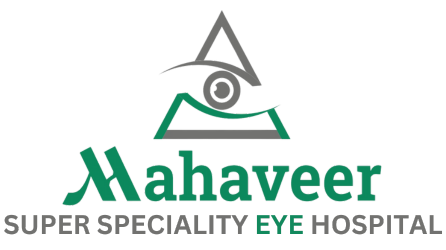Laser-Assisted In Situ Keratomileusis (LASIK) surgery is a popular, minimally invasive eye procedure used to correct vision problems such as myopia (nearsightedness), hyperopia (farsightedness), and astigmatism. By reshaping the cornea (the clear front part of the eye), LASIK improves the eye’s focus, allowing patients to experience sharper vision, often without the need for glasses or contact lenses. If you’re considering LASIK, it’s essential to understand its benefits, risks, and what you can expect during the process. Here at Mahaveer Eye Hospital, we provide expert care to guide you through every step.
Pros of LASIK Surgery
- Quick Results and Recovery: One of the biggest advantages of LASIK is its quick recovery time. The surgery itself takes about 15 minutes per eye, and many patients notice an improvement in their vision within 24 to 48 hours.
- Long-lasting Results: LASIK results are generally permanent. Once the cornea is reshaped, it usually remains that way, providing stable, clear vision for years to come. While natural aging of the eyes may eventually affect vision, LASIK is often a long-term solution.
- Minimal Pain: Most patients report minimal pain or discomfort during and after the procedure. Numbing drops are used during surgery, and only mild dryness or irritation is typically experienced afterward.
- Enhanced Quality of Life: For individuals who have depended on glasses or contacts for years, LASIK can provide a newfound sense of freedom and convenience, making activities like swimming, sports, and daily routines easier.

Cons of LASIK Surgery
- Possible Side Effects: While LASIK is a safe procedure, some patients may experience temporary side effects, such as dry eyes, glare, halos around lights, or nighttime vision difficulties. These usually resolve within a few weeks or months but can persist for some.
- Not Suitable for Everyone: LASIK may not be suitable for individuals with certain eye conditions, such as severe dry eyes, thin corneas, or certain chronic conditions. A comprehensive eye exam is essential to determine candidacy.
- Potential for Retreatment: In rare cases, vision changes may require a secondary “enhancement” procedure, especially if the initial results weren’t as expected. However, enhancements are generally rare and are usually minor if needed.
What to Expect During the LASIK Procedure
Before the procedure, your doctor will perform a detailed eye exam to assess whether LASIK is a safe option for you. During the surgery, a laser is used to create a small flap on the surface of the cornea. This flap is then lifted, and another laser reshapes the underlying corneal tissue. The flap is repositioned, where it naturally heals without stitches.
The entire procedure typically takes less than 30 minutes, and you’ll likely be able to see an improvement in your vision within hours. Post-surgery, you may experience some dryness or mild discomfort, which can be managed with eye drops and medications. Within a few days, most patients are able to resume their normal activities.
Is LASIK Right for You?
If you’re considering LASIK, it’s essential to consult with a qualified eye specialist to understand your specific needs. At Mahaveer Eye Hospital, our experienced team provides personalized evaluations to help you make an informed decision.



